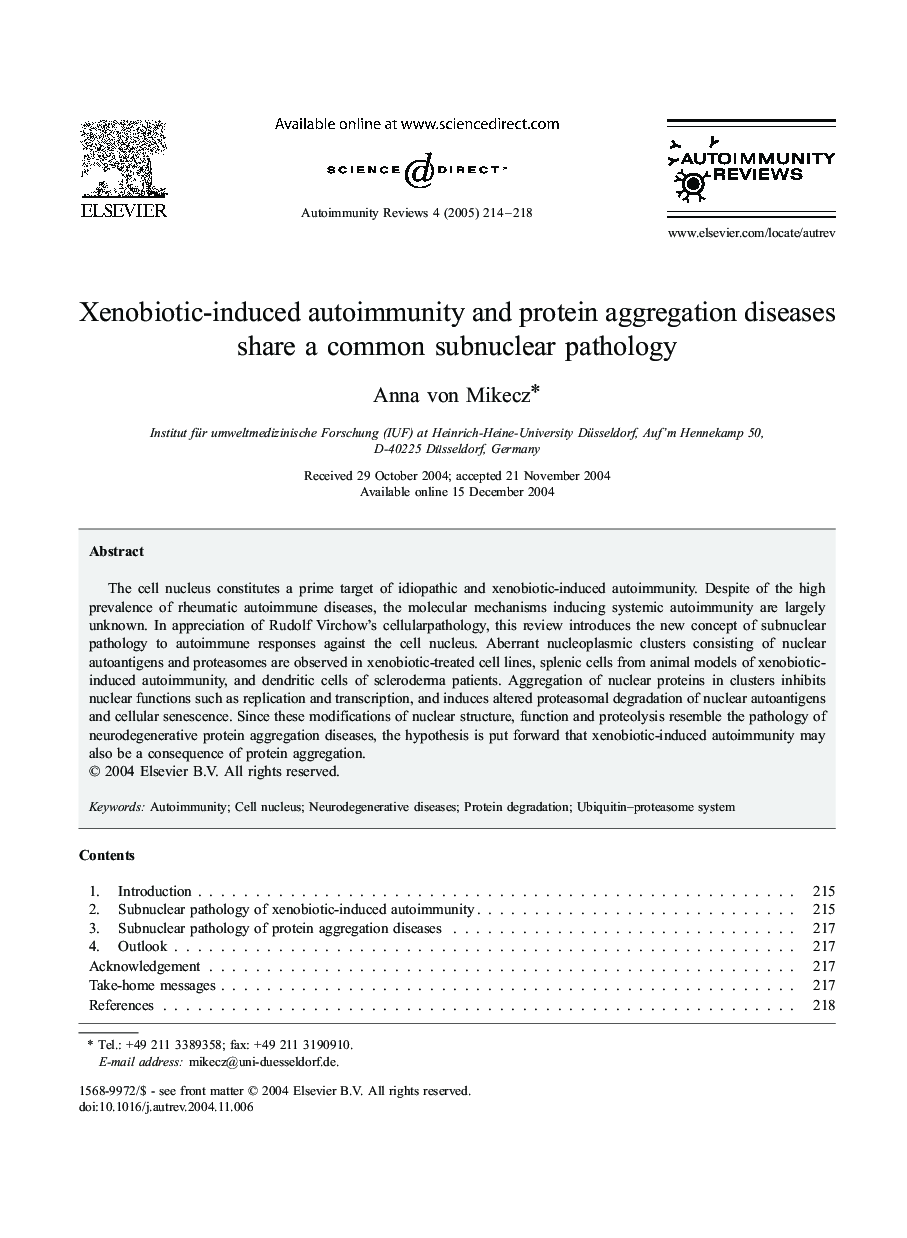| Article ID | Journal | Published Year | Pages | File Type |
|---|---|---|---|---|
| 9261567 | Autoimmunity Reviews | 2005 | 5 Pages |
Abstract
The cell nucleus constitutes a prime target of idiopathic and xenobiotic-induced autoimmunity. Despite of the high prevalence of rheumatic autoimmune diseases, the molecular mechanisms inducing systemic autoimmunity are largely unknown. In appreciation of Rudolf Virchow's cellularpathology, this review introduces the new concept of subnuclear pathology to autoimmune responses against the cell nucleus. Aberrant nucleoplasmic clusters consisting of nuclear autoantigens and proteasomes are observed in xenobiotic-treated cell lines, splenic cells from animal models of xenobiotic-induced autoimmunity, and dendritic cells of scleroderma patients. Aggregation of nuclear proteins in clusters inhibits nuclear functions such as replication and transcription, and induces altered proteasomal degradation of nuclear autoantigens and cellular senescence. Since these modifications of nuclear structure, function and proteolysis resemble the pathology of neurodegenerative protein aggregation diseases, the hypothesis is put forward that xenobiotic-induced autoimmunity may also be a consequence of protein aggregation.
Keywords
Related Topics
Life Sciences
Immunology and Microbiology
Immunology
Authors
Anna von Mikecz,
